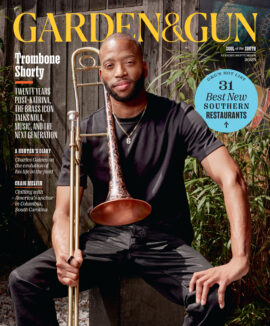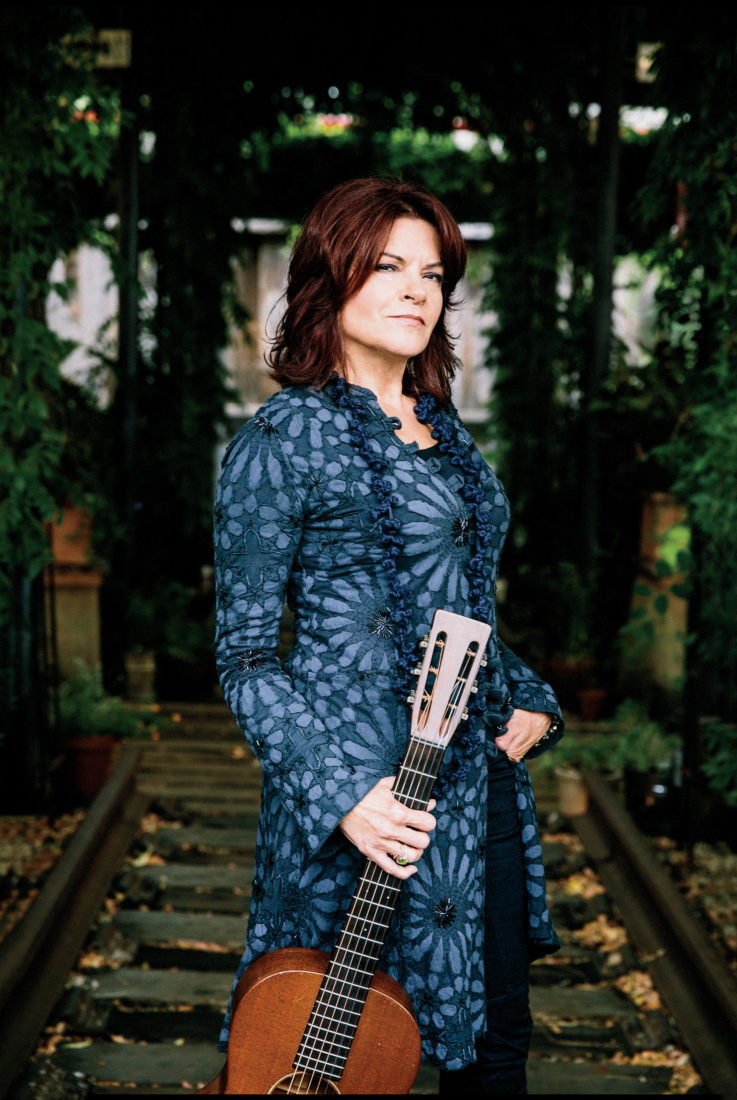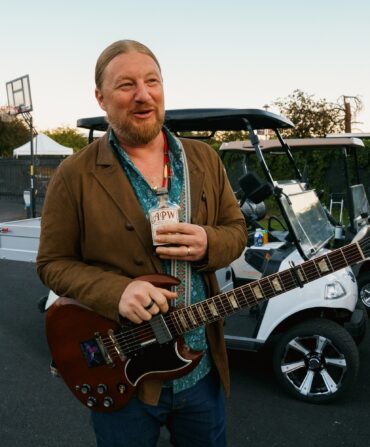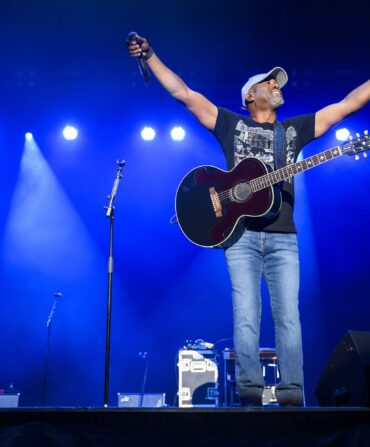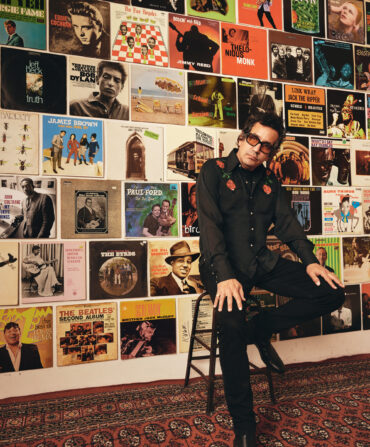For much of her long, eclectic, and celebrated career, singer-songwriter and author Rosanne Cash has distanced herself from country music. Memphis-born, she grew up in Southern California before spending nine years in Nashville and moving in 1991 to New York City, where she currently lives with her husband, producer and musician John Leventhal. But the South has continued to call to her, perhaps never so strongly as in the past few years. As she became involved with Arkansas State University’s restoration of the boyhood home of her father, country legend Johnny Cash, she took a series of trips through the region that ultimately led to the creation of her elegiac and elegant new album, The River & the Thread. The album’s songs reference people who molded her life from an early age, such as her grandmother Carrie Cash (“The Sunken Lands”) and her father’s longtime bassist, Marshall Grant, and his wife (“Etta’s Tune”), as well as places and people that captured her imagination during her travels.
“I didn’t grow up in the South, but both my parents were Southerners,” says Cash, who is fifty-eight. “And I have such a profound connection to the South through them and the time I spent there and the people I know and love, that I really am proud to show that part of my soul in this record.”
Why did you want to write The River & the Thread?
After [2009’s] The List, people kept saying, “Oh, are you going to do volume two of The List?” And I really held that at arm’s length because I thought, “Man, I’m a songwriter, and I made an album of covers, and it was really successful.” It shook me a little bit. I thought, “I have to get back to songwriting. I have to restake that claim.” Then John and I started making these trips, and I felt my heart crack open to the South again. And something solid began to form with us about the record, how it should be a map of the Southern soul, my own and others’. I feel like if I don’t make any more records, it’s okay, because this is a synthesis of everything I’ve done up to this point.
The opening track, “A Feather’s Not a Bird,” came out of one of your first trips back, in 2010.
John and I went to Natalie Chanin’s workshop in Florence, Alabama. Her company is Alabama Chanin, and I had seen her clothes at Barneys and Bergdorf’s. I’d go through the rack and finger every piece of her clothing, just touching the threads and marveling at something that was original and hand stitched like that at Barneys. We met in New York and just started talking as if we had known each other our whole lives. In Alabama, Natalie took John and me to the magic wall, the Sacred Indian Stone Wall memorial, which is the longest freestanding, nonmortared wall in America. It has this mystical quality. It was so powerful! I felt like something was meditating me, instead of me meditating it. Then we went to Muscle Shoals, to the FAME studios, and soaked up that vibe, and then on through Mississippi to Memphis and into Arkansas, to my dad’s boyhood home, which was a disaster. It was falling down, and the plan was to restore not only the house, but the Dyess Colony—the administration building, the co-op, the movie theater, all of it. It’s historically important. It doesn’t get much attention in our nation’s history, but it was a planned community founded in 1934. The New Deal saved the Cash family.
On another trip last year, you drove down Highway 61, which inspired so much of this record.
Yes. We started in Memphis, went to Oxford, Mississippi, and William Faulkner’s house, and to Greenwood, Mississippi, to Robert Johnson’s grave, to the Tallahatchie Bridge, and the site where Emmett Till went in the store and supposedly flirted with the woman.
Did you get chills when you went to some of these places?
Oh, my God, it was so moving—sometimes an out-of-body experience. Do you realize how close Robert Johnson’s grave is to the Tallahatchie Bridge? And to Money, Mississippi, and Emmett Till? It’s like a vortex! It’s unbelievable. The music is beyond comprehension, the beginning of the civil rights movement [took place there], and then there’s this storied bridge from Bobbie Gentry’s “Ode to Billie Joe,” which I’ve been doing live for several years now. It was just mind-blowing. John and I spent a half hour sitting on the Tallahatchie Bridge, and not a car went by. In fact, that’s the album cover.

There’s also a powerful song about the Civil War on the album, “When the Master Calls the Roll,” that you and John and your first husband, Rodney Crowell, cowrote.
That was probably the most intense songwriting experience I’ve ever had in my life. John and Rodney had written this song for Emmylou [Harris], and it was about something totally different. It sat on a back burner for a couple of years, but I couldn’t get John’s melody out of my head. So I asked Rodney if he would be open to different lyrics. At the same time, my son was doing a project in school about the Civil War. And one night I said, “Your ancestors fought on both sides of the Civil War.” And I went on the Civil War database and found a picture of William Cash, a Union soldier from Massachusetts. Then I went to Ancestry.com and looked up Cash women who were age nineteen to twenty-two at the start of the Civil War and who never married. I thought, “Well, they all had fiancés who died in the war, and they just stayed brokenhearted.” And as we continued to work on this song, these characters came to possess me. I thought about them all the time. It was just so moving to me.
Your dad has been gone ten years now. What’s one of your favorite memories?
When his eyesight was about gone, I would read the Bible to him, mostly the Psalms and the Book of Job. He loved it because he was such a great reader his whole life, and he couldn’t read anymore. His books were all around him in his study, and I remember he said, “This is a room full of regrets now.” It just broke my heart. So I would go down to Nashville and read to him, and then I would read to him on the phone when I was back in New York. One time, we had arranged a phone time to read the Psalms, and I was up at my country house in upstate New York. I looked all around, and I had no Bible. I went, “Oh, my God, he’s going to be so disappointed.” And he called, and I said, “Dad, I don’t have a Bible. I only have Shakespeare.” He went, “Hmmm, Shakespeare, huh? Let’s just let it go until you get back to the city.” [Laughter.]
You must miss him terribly.
I still dream about him about once every three or four weeks. Your relationship with your parents goes on.
How do you feel about him being on a postage stamp?
I think it’s fantastic! Dad loved being on the road. Now he gets to do it forever.

